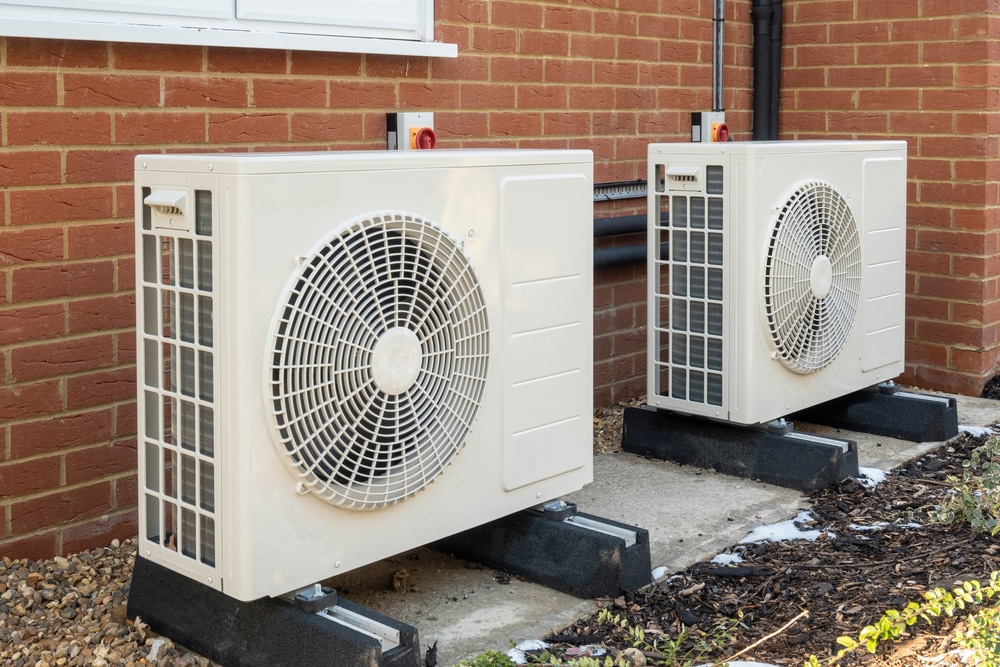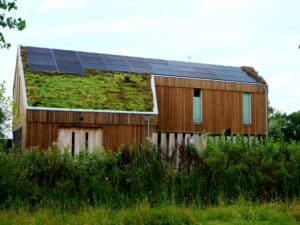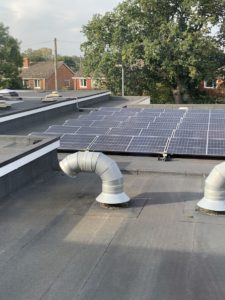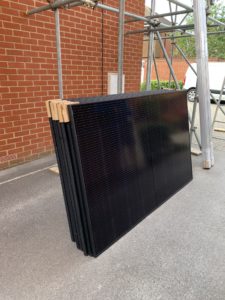What are the Most Eco-Friendly Heating Options?
It goes without saying that the need for sustainable and eco-friendly solutions has become increasingly crucial. As we strive to reduce our carbon footprint and combat climate change, one area that often gets overlooked is home heating. Recently, homeowners have been veering away from traditional heating methods because they can negatively contribute to carbon emissions. Instead, eco-friendly heating options enable us to keep our homes warm whilst minimising our impact on the planet. If you’re wondering what eco-friendly heating options are, this blog from BuildPass is here to help!
Solar Thermal Heating Systems
Solar thermal heating systems are the perfect solution if you’re looking for a renewable technology that lowers fuel bills and reduces household dependency on fossil fuels. Using the power of the sun, solar thermal heating systems use solar collectors to absorb sunlight and convert it into heat energy. The heat is then used to produce the hot water that runs from your taps, leaving you with a sustainable source of energy to fulfil much of your annual hot water requirements. The long-term benefits and minimal environmental impact of solar thermal makes this an excellent eco-friendly heating choice.
Air Source Heat Pumps
For a sustainable alternative to traditional fossil fuel heating, look no further than air-source heat pumps. Unlike traditional heating systems, heat pumps use the warmth from the air outside your property to provide heating and hot water for your home. When properly designed and installed in a well-insulated house, an air source heat pump system can offer a more environmentally friendly alternative to a gas, oil, or LGP boiler. This heat source is renewable, meaning that the amount of harmful greenhouse gases released into the air from the home could be significantly reduced. In October 2023, Prime Minister Rishi Sunak announced an update to the Boiler Upgrade Scheme, which provides eligible homeowners with a grant of £7,500 if they install a low-carbon heating system, such as an air source heat pump, to replace a fossil fuel boiler. Want to find out more about air-source heat pumps? Take a look at Grant UK’s blog ‘What is an air source heat pump?’ to find out more.
Ground Source Heat Pumps
Also known as geothermal heat pumps, this energy-efficient heating solution relies on the ground’s temperature to transfer heat. They use the earth’s relatively constant temperature below the surface to heat or cool homes efficiently. This heating system is known to reduce carbon emissions because it relies on the earth’s natural heat, reducing the need for burning fossils to generate heat. Take a look at our blog ‘What you Need to Know About Ground Source Heat Pumps’ to find out more information!
Electric Combi Boilers
Unlike traditional gas or oil boilers which burn fossil fuels to generate heat, electric combi boilers use electricity to heat water and distribute it throughout the home for both space heating and domestic hot water purposes. As well as being highly efficient in converting electricity into heat, electric combi boilers are also known to have less heat loss and also tend to operate quietly, meaning you can have a more pleasant living environment.
Biomass Heating Systems
This eco-friendly heating system uses organic materials, such as wood pellets, logs, and chips, to generate heat. If you’re searching for a system that performs similarly to a gas or oil boiler but doesn’t produce as much carbon, this is the right choice for you. It’s worth noting, however, that biomass boilers are better suited for large homes that require lots of hot water, therefore it might not be suitable if you have a smaller home. Find out more about biomass heating systems here!
Choosing the Right Eco-Friendly Heating System For You
As we become more aware of our environmental impact, choosing eco-friendly heating options is a step towards creating a sustainable future. From air-source heat pumps to solar power, there are various alternatives that can keep our homes warm while minimising harm to the planet. By making conscious decisions in our heating choices, we contribute to a greener, cleaner, and more sustainable world.




















